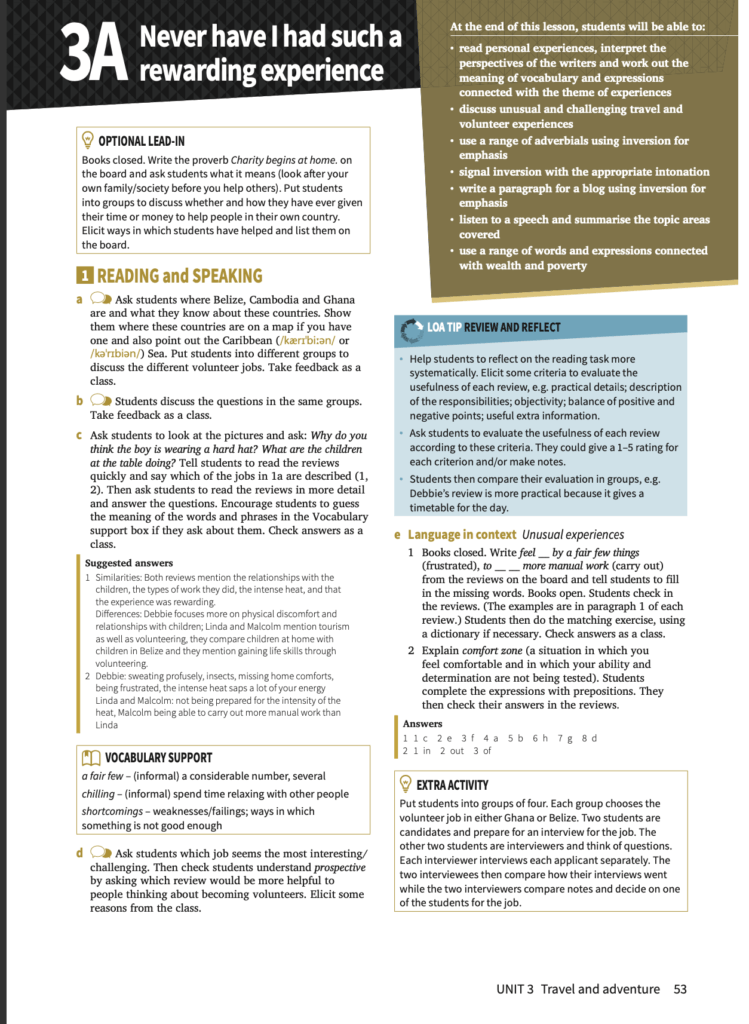Unit 3 – Rewarding experience

Learning goals:
At the end of this lesson, students will be able to:
- read personal experiences, interpret the perspectives of the writers and work out the meaning of vocabulary and expressions connected with the theme of experiences
- discuss unusual and challenging travel and volunteer experiences
- use a range of adverbials using inversion for emphasis
- signal inversion with the appropriate intonation
- write a paragraph for a blog using inversion for
emphasis - listen to a speech and summarise the topic areas
covered - use a range of words and expressions connected
with wealth and poverty.
Resources:
Unit 3 – Textbook Travel and adventure – Cambridge
Learning activities
VOCABULARY
Wealth and poverty: affluent, deprived, destitute, disposable income, hardship, impoverished, live within your means, make ends meet, prosperity, well-off
Landscape features: an arid desert, calm turquoise waters, dark pools of stagnant water, dense fog/vegetation/ undergrowth, empty moorland, forest canopy, the heart of the rainforest/capital/jungle, huge sand dunes, a mosquito- infested swamp, the mouth of a cave, pristine beaches, a remote area/forest/village, a rich green meadow, rocky ground, rugged coastline, sheer cliffs, a tropical rainforest/ storm/island/paradise, an untouched wilderness/forest/plate of food, wooded slopes
Language in context: Unusual experiences; Descriptive verbs; Exaggerating
Word power: Idioms: Landscapes: be a slippery slope, be on the rocks, be swamped, a drop in the ocean, get the lie of the land, out of the woods, an uphill struggle
PRONUNCIATION
Tone in inversion structures
Word stress
Glottal stops
Consonant groups across two words
